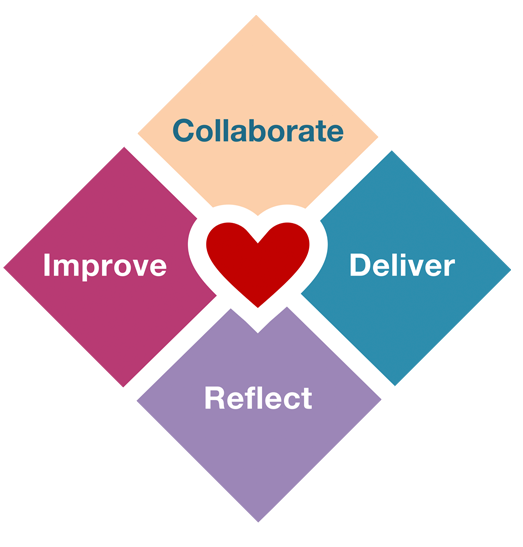What is Agile?
Agile is a mindset for responding to change in a Volatile, Uncertain, Complex and Ambiguous (VUCA) world.
The Agile Manifesto was created in 2001 as a better way to develop software. Since then Agile has become mainstream - even in different industries such as finance, healthcare, government and more. However, with the hype, we also see lots of misunderstanding, including:
- “Agile is chaos!”
- “Agile is traditional project management, rebranded”
- “Agile does not use plans or documentation”
- “Agile is complicated processes which requires certified experts to use”
- “Agile (and self-organization) is an excuse to fire middle management”
Therefore, the first question anybody should ask when talking about Agile is: “What does Agile mean to you?”. For some, misunderstandings and bad practices might prevent them from seeing the value Agile has to offer.
What does Agile mean to me?
For me, Agile is a mindset for responding to change in a Volatile, Uncertain, Complex and Ambiguous (VUCA) world.
The Agile mindset puts people at the center stage: both in customer excellence and employee happiness and productivity.
Agile is simple, but not easy
Agile, as a mindset, should be simple to understand. However, it is not always easy to do! According to Alistar Cockburn, the heart of agile is just four simple words: Collaborate, Deliver, Reflect and Improve.
Dave Thomas also argued for a return to a more simpler Agile when he proclaimed “Agile is dead”. For him, the essence of Agile is these four steps:
- Find out where you are
- Take a small step towards your goal
- Adjust your understanding based on what you learned.
- Repeat
For me, these are key elements of the Agile mindset:
- Reduce uncertainty by testing the riskiest thing first.
- Create feedback loops for delivering real customer- and business value (map the value stream)
- Deliver work in short iterations, and learn from every iteration.
- Facilitate structured self-organization by supporting the autonomy, competence and community of employees.
Comfortable with uncertainty
On a more deeper level, the Agile mindset is not always easy to have. It can be very hard to become comfortable with uncertainty. We humans have a built-in longing for predictability, order and control.
The poet John Keats called this skill Negative Capability:
I mean Negative Capability, that is, when a man is capable of being in uncertainties, mysteries, doubts, without any irritable reaching after fact and reason
I think developing Negative Capability is essential for really being Agile.
Agile is humans first
Dave Snowden, Martin Fowler and others speak up against the Agile industry who emphasizes implementing complicated processes with certified experts. They argue that one of the principles was individuals and interaction over processes and tools, and I agree.
This is why I and much more people a powerful approach for this.


 ](
](